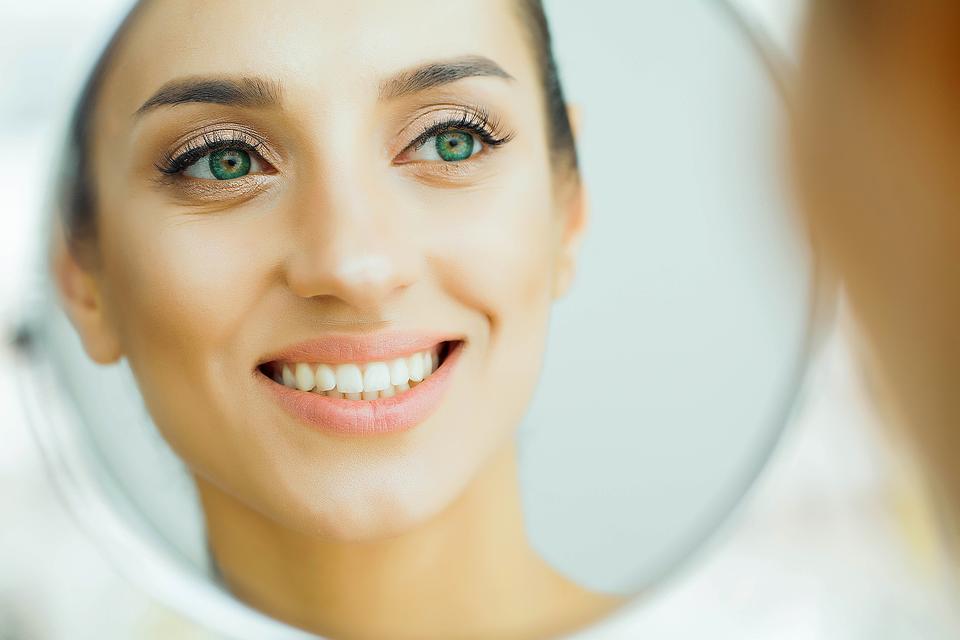Skincare is something that has many different methods to choose from. The industry is always evolving, and new discoveries are being made that can create a positive impact on the skin of customers. However, there are several common pitfalls when it comes to skincare, which means that it is important to choose products carefully and to have an awareness of the kind of chemicals within each product to avoid a harmful reaction to your skin. If you are looking to learn about new important skincare tips that have the potential to revolutionize your skin, review the information below:
15 Essential Professional Skincare Tips
It is important to continuously learn about updates in the skincare industry. In order to learn 15 new essential professional skincare tips that the experts don’t want you to know, consider the information below:
1. Use Sunscreen
Even though your make may have SPF, you still need to have sunscreen under your makeup to protect your skin. Be sure to use sunscreen as much as possible. By doing so, you will protect your skin and have fewer consequences later on from developing skin cancer.
2. Unscented Does Not Mean Fragrance-Free
For individuals that are looking to find unscented products just to alleviate an allergy, it is important to understand that unscented does not mean fragrance-free. If you have allergies, it is best to assess which ingredients you are allergic to rather than merely assuming it’s a fragrance. You can achieve this by testing different products on your skin and seeing how it reacts. From there, you can eliminate the cause of your skin irritation or allergic reaction.
3. Plant-Based Ingredients Are Not Always Safe
There are many natural irritants in plants that have different reactions to humans. It is important for individuals to be aware of which plants they are allergic to so that they are able to avoid reactions in their skincare regimens. If you see your skin having a strange reaction, try removing products with plant-based ingredients. This will be very helpful to you for eliminating unwanted allergic reactions and skin irritations.
4. Your Makeup Will Last Longer if You Use Primer or Concealer
If you want to use less eye shadow and save money, consider putting primer or concealer on your eyelids before applying eye shadow. By doing so, you don’t have to reapply your eye shadow and waste more product. This will save you money on your makeup purchases.
5. It Is Impossible to Know What Ingredients Are Inside Fragrances
In many countries, it is illegal to disclose what ingredients are inside fragrances because they are considered trade secrets. For this reason, it is important to take note if a fragrance is irritating your skin and eliminate that product from your skincare routine.
6. Eye Cream Is Not Always Necessary
Eye cream is criticized for being moisturizer sold in a small container. Many eye creams are not worth the price and can be avoided to save money.
7. Dermatologists Have Noticed an Increase in Bacterial Infections from Unsanitary Makeup
Dermatologists have noticed an incredible increase in bacterial infections from unsanitary makeup. Be sure to watch your skin carefully for any irregularities. If you know something strange, it is best to visit your dermatologist.
8. Choose Oil-Free Products if You Are Prone to Acne
Acne can be caused by having too much oil on your skin. If you are having trouble with acne, it is wise to try oil-free products to see if they help clear up your skin. If they do, then you should switch to those products going forward.
9. If You Have Oily Skin Skip Using Toner or Astringent
Oily skin is something that is excellent foraging. Even though oily skin can cause acne, it is important to not purchase products that deny the skin of its natural oils. Try purchasing products that play into your skin’s strengths and you will notice a substantial improvement in your skin.
10. Wrinkle Cream Is a Myth
Many creams are marketed as anti-wrinkle; however, this is merely a marketing ploy. Many cosmetic companies use this as a way to increase sales. Be sure to avoid purchasing anti-wrinkle products unless you legitimately enjoy their scent and impact on your skin’s moisture levels.
11. How Many Chemicals Are in Most Products
The general rule of thumb is that if your product has too many ingredients, it is likely to not be that healthy for you to use. The same rule is applicable to food. In general, if you see products with too many chemicals that you do not recognize, then it is highly likely that they are not healthy for your skin.
12. How Lead Is Still in Many Lipsticks
Contrary to popular belief, there are still harmful substances in certain cosmetic products. For example, lead is still in many lipsticks. For this reason, it is imperative to check carefully the ingredients of lipsticks that you are using in order to limit your exposure to lead as much as possible.
13. Certain Anti-Oil Products Actually Produce More Oil
Be careful to balance your oily skin with too much moisturizer. The truth is that anti-oil products can often cause you to have more oil produced, which can lead to more acne as well. The key is to celebrate your oily skin and then use the correct powder or foundation to cover it up. By doing so, you will enhance your complexion substantially.
14. Many Parts of Your Skin Care System Are Not Necessary
It is important to realize that cosmetic companies attempt to market their products as much as possible. What this means is that they are always looking for an upsell. For example, if there is a 6-step skincare section, odds are that there are parts of that system that do not need to be purchased. When considering buying cosmetic products, the idea is that you should be finding which individual products work on your skin and then combine those products even if they are from different brands.
15. Nearly One in Five Cosmetic Products Has Traces of Formaldehyde
Formaldehyde is a very dangerous chemical that is a known human carcinogen. It is typically best to avoid products that have chemicals such as DMDM hydantoin, Diazolidinyl urea, imidazolidinyl urea, bronopol, and sodium hydroxymethylglycinate. Many of these ingredients are also toxic.
The Benefits of Using Cosmetic Products with Fewer Chemicals
One great way to reduce your skin’s risk of harmful chemicals or allergic reactions is to go natural. Organic is a term that is over-utilized in the market, which means that it is important to research products branded as organic carefully in order to avoid common pitfalls of buying a product you think is made from natural ingredients and then realizing that you are having harmful chemicals on your skin. The general rule of thumb is that it is better to find a product that has fewer ingredients than products that are saturated with too many ingredients. This way, you will have a clear understanding of what products you are putting on your skin and eliminate your risk to harsh reactions from those products.
Why Less Is More with Cosmetic Products
While experimenting with many products is amusing for consumers, it is important to stick to a few select products that work effectively. Be sure to have a skin assessment where you learn what kind of skin you have and then from there, look at products that will address any skin issues that you may have. From there, sample a few for a couple of weeks to see which products achieve your desired results. From there, you will be able to figure out which products or combination of products are the best possible mix to not only help your skin but do not use too many different products that you do not need. By using too many products, you also have the risk of having complications with your skin, which is why it is best to keep things simple.
Final Remarks
In general, the cosmetic industry has come a long way by developing products that are healthier for consumers while also taking the time to educate consumers on which products would be beneficial for their skin. Each person has a unique skin complexion and it is important to get their unique formula right in order to have successful skincare results. Customers need to be aware of the large margins in the cosmetic industry and the tendency to promote products that are not entirely helpful to the consumer’s individual needs. By understanding what kind of skin type each individual has, customers will be able to find the right products that are healthy for their skin. In addition, customers will be able to avoid products with harmful chemicals that may not be ideal for the long-term health of their skin. Customers who possess and awareness of these common pitfalls in the skincare market will have an easier time selecting the right products for their particular needs.




